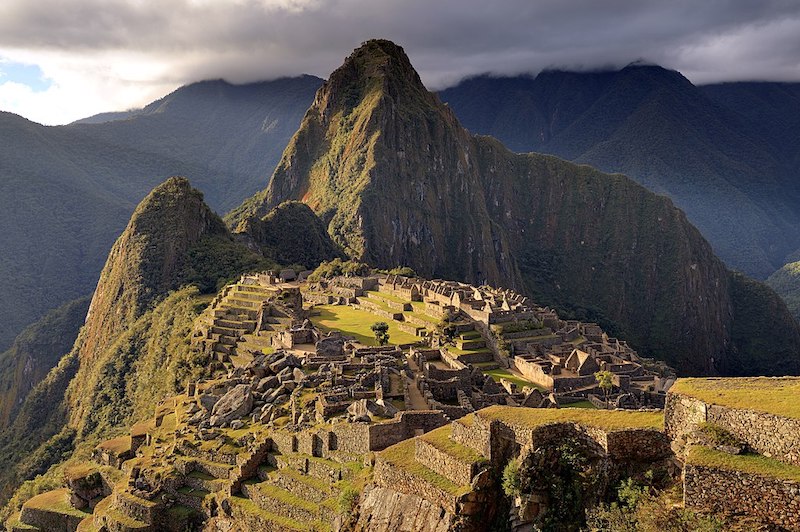Peru’s Inca Trail is one of the most popular treks in the world, luring thousands of hikers on an annual basis. As with any major trek –– like Everest Base Camp or Kilimanjaro –– the journey wouldn’t be possible for most travelers without the help of some dedicated and tough porters. Those men and women are the unsung heroes of any adventure in the mountains, rarely getting their moment in the sun. But now, the folks at Adventure.com have put together an interview with one such porter who sheds a little light on what it is like to do his job.
Richard Pfocohuanca is a Peruvian porter who has worked on the Inca Trail for more than 13 years. Over the course of that time, he says he has walked that route hundreds of times, often working very long 15+ hour days in support of travelers. Despite those efforts however, Richard says that he has never seen Machu Picchu, the famous Inca fortress that sits at the end of this iconic trek. That’s because the porters don’t complete the hike to the archaeological site, but instead take an alternate route back down the mountain, carrying gear and supplies as they go. In the interview, the professional porter says ““I really want to go. Travelers often tell me about it, and I’ve seen some pictures. It looks very beautiful.”
In the interview, Pfocohuanca talks about how he got started as a porter, whether or not he enjoys the work (spoiler alert: he does!), the challenges of being away from his family for extended periods of time, and much more. He also provides some insight on the wear and tear that his work has on his body, especially after 13 years on the trail, while also touching on his future aspirations and hopes to see Machu Picchu one day.
At one point, Richard shares what a typical day is like working on the Inca Trail. That day begins at 4:30 AM, during which the porters prepare for the day and start to wake up the trekkers. They make breakfast for themselves and their clients, then start packing up the gear and equipment for travel to the next campsite. Each bag that they carry can be no more than 20 kg (44 pounds) however, so there is a lot of adjusting and shifting of items before they set out for the day. Pfocohuanca says that typically the porters break camp about a half hour behind the trekkers, but they soon pass them on the trail. In order to reach their stop for lunch, the porters have to cover the same distance that the travelers hike for four hours in as little a 1.5 hours instead. Another two hours beyond that is the next campsite for the evening, and Richard says that if he’s carrying the tents he’ll skip lunch and just keep on going. Once there, he and the other porters will immediately being setting up camp for the arrival of the guests.
As you can probably imagine, the job of a porter is tough and includes some very long days with few beaks. It is mostly thankless work, although the travelers who embark on these trips are usually extremely grateful for he assistance and hopefully provide good tips to the team of porters. After all, most of us wouldn’t be able to enjoy these adventures without them.
Read the entire interview here.
- Gear Review: The Xero Scrambler Mid is an Ultralight Hiking Shoe for Spring - March 1, 2023
- Gear Review: Yeti Roadie 48 Wheeled Cooler - August 18, 2022
- Kristin Harila Continues Pursuit of 8000-Meter Speed Record - August 16, 2022
